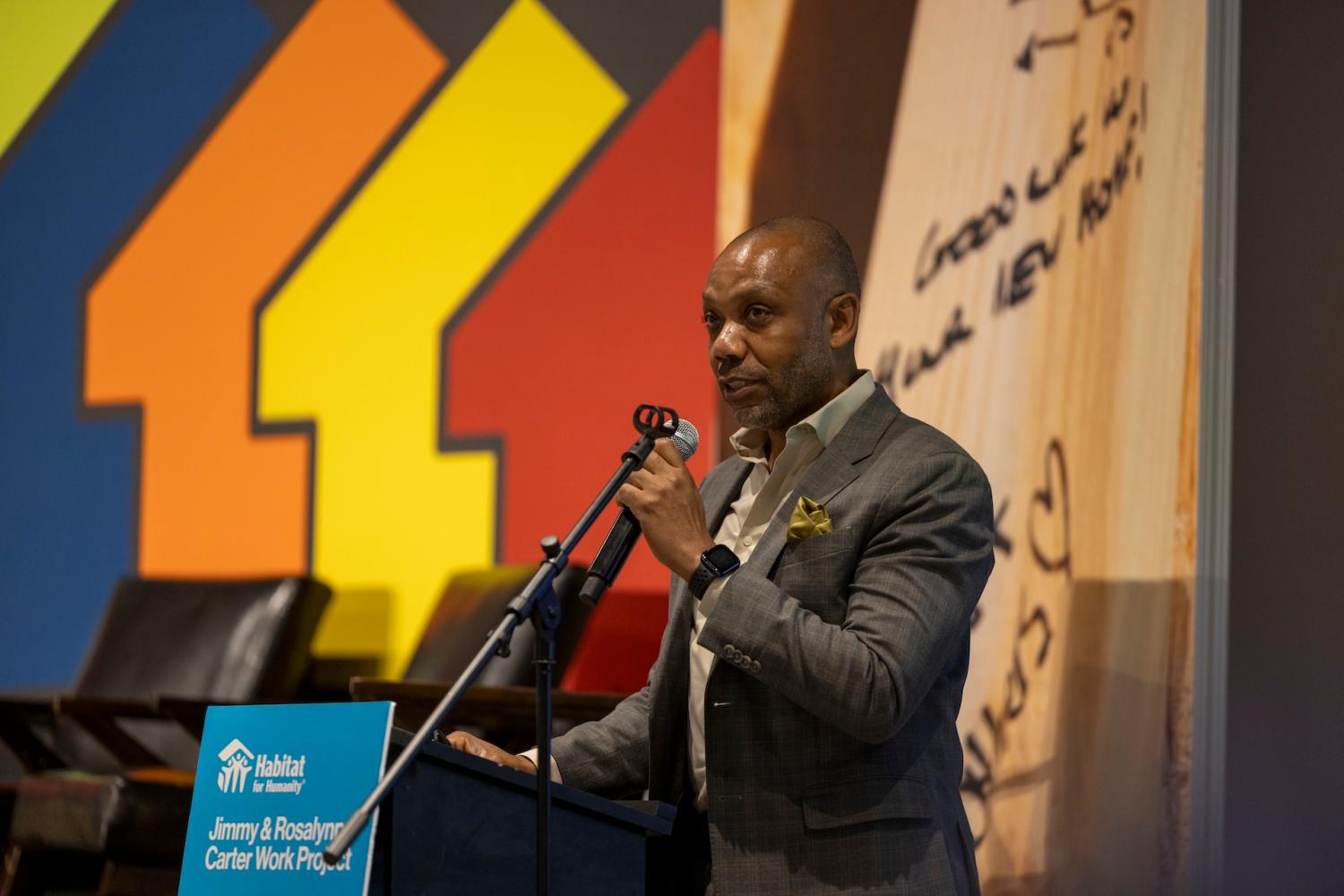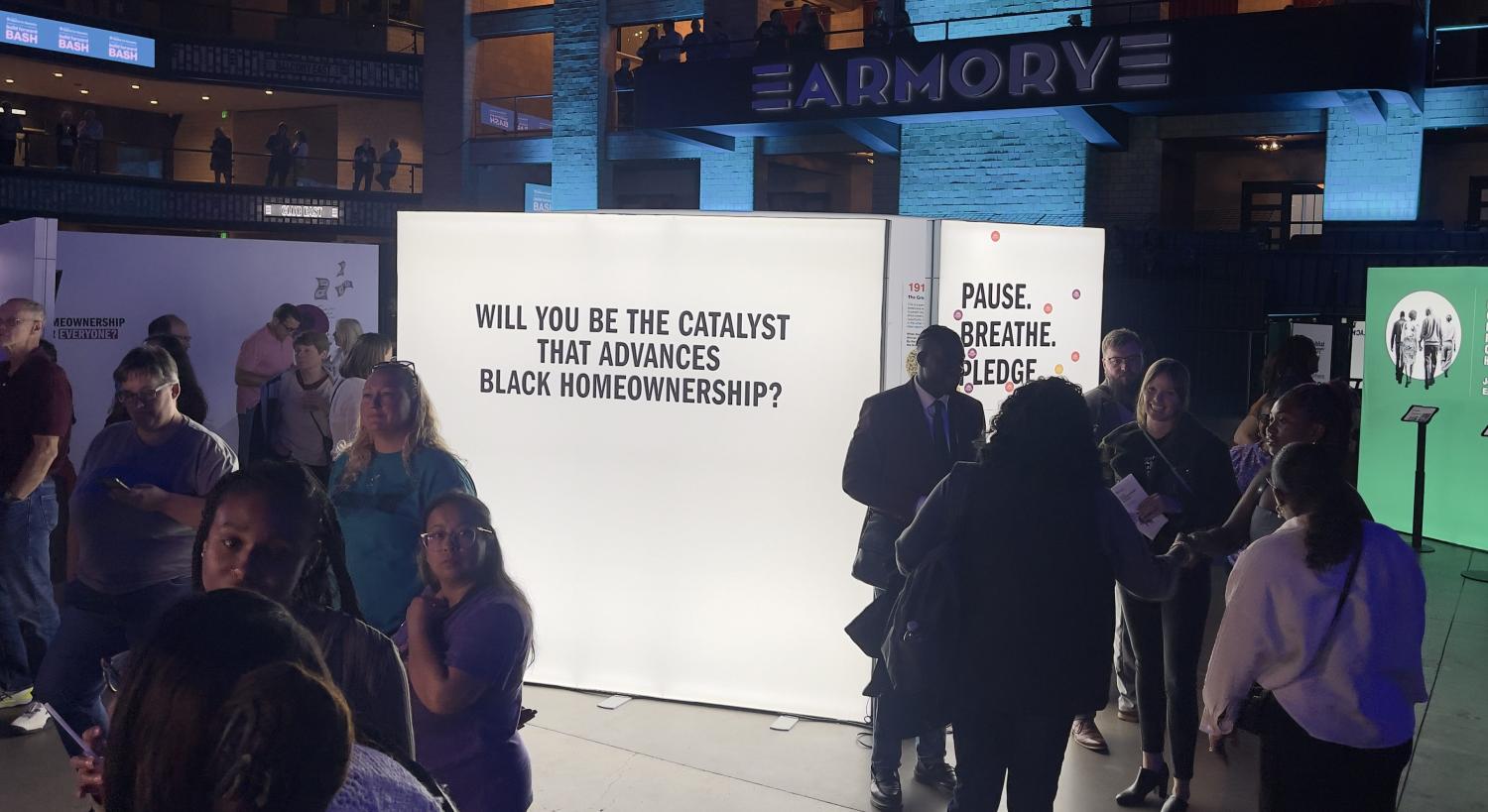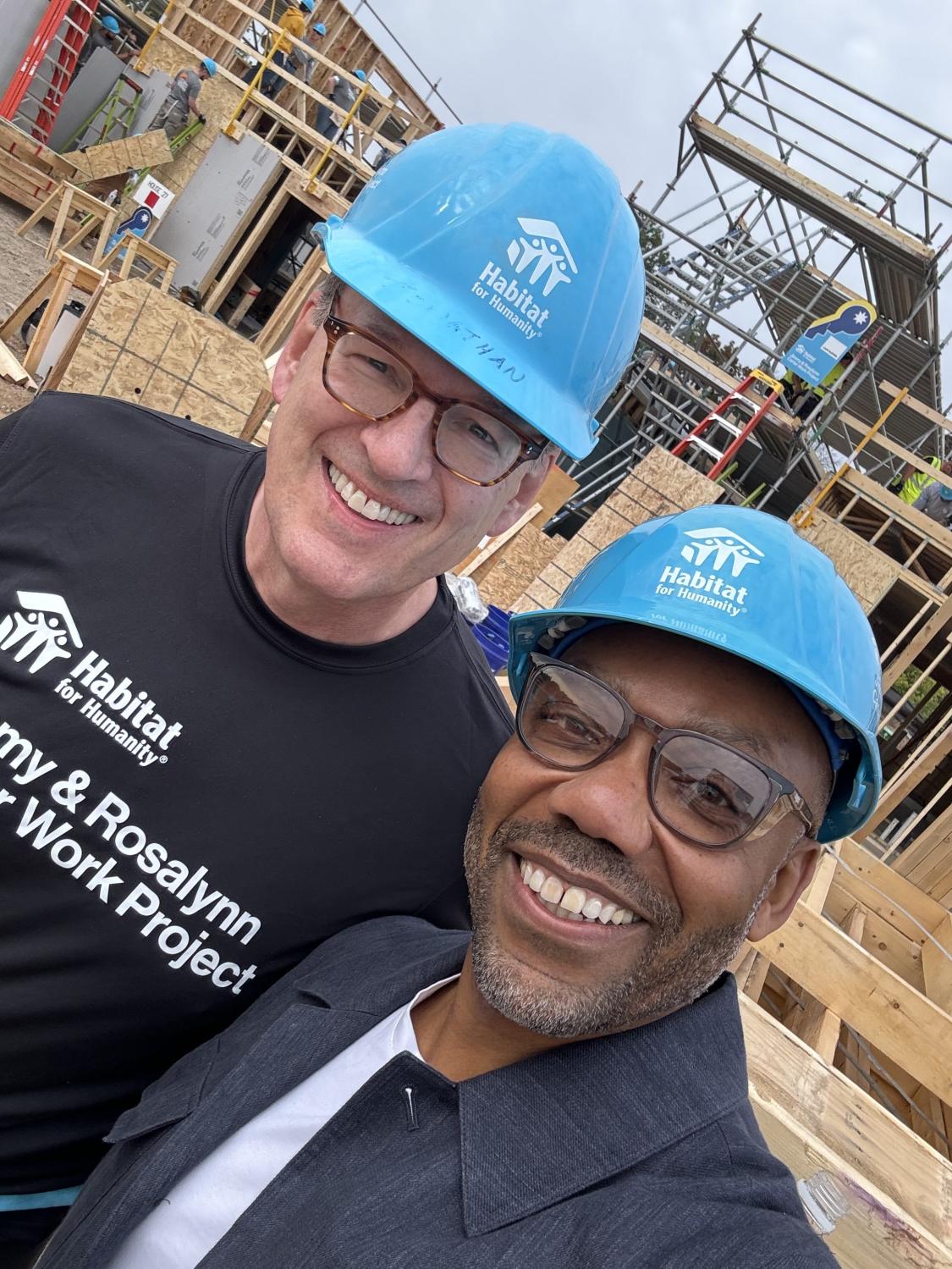The only thing that suggests our nation doesn’t have a housing crisis is the alarming length of time we’ve allowed it to persist without meaningful action. Since the housing crisis of 2007–2008, we seem to have built little more than another crisis.
Record-breaking numbers of families are struggling to find affordable housing, with more than 7 million homes lacking for the nation’s 10.8 million extremely low-income families, according to the Low Income Housing Coalition. Shockingly, there is no state or county where a full-time minimum wage worker can afford a two-bedroom apartment, and 70 percent of extremely low-income families are severely cost-burdened, spending more than half their income on rent.
Part of Jimmy Carter’s legacy includes his involvement with Habitat for Humanity International, where his direct participation contributed to the construction of thousands of new homes for families. Since 1984, the Jimmy & Rosalynn Carter Work Project has touched lives around the world by inspiring more than 108,000 volunteers to help build, renovate and repair 4,447 homes in 14 countries.
Over the past 4 years, I’ve served as a keynote at numerous Habitat affiliate events. Last year, I was honored to serve as the keynote speaker at the annual housing build dedicated to Jimmy and Rosalynn Carter, held in Minneapolis. The former president was too infirmed to participate last year, but I still hold that engagement as one of my highest honors. Since Carter’s passing on December 29, 2024, countless reflections have emerged about his values, character, and commitment to service.
The housing crisis is daunting and complicated by a fragmented regulatory environment, discord among federal, state, and local policymakers, prices that are simply out of reach, and entrenched racial politics. At the local level, however, we see solutions driven by goodwill and ethical leadership that can be replicated across all levels.
If we commit to building homes like Carter did, we can begin to address some of deeper issues that keep us mired in a perpetuating housing crisis, with all its harmful repercussions. So many positive complements have been said about the peanut farmer’s character that should be applied to our collective efforts to address a complex housing market, resulting from a confluence of factors, including restrictive zoning ordinances that reflect remnants of segregation, labor supply shortages, a lack of federal policies focused on construction, and an abundance of red tape that hinders development.
Any casual reading of housing policies in the United States will show its connection to segregation and discrimination. For most of America’s history, it has been legal to discriminate, particularly against Black people. In many ways, society has grown to live with many past immoral policy positions, including racially biased, single-family zoning ordinances, as well as appraisal, tax assessment and lending practices that assume race and not racism is a risk factor. Fractured race relations also help keep viable solutions at bay.
As I walked on the site Carter build in Minneapolis, I felt a profound sense of purpose, cooperation, and dedication that truly mirrored the essence of what I’ve read about Carter’s character—qualities that are essential for effectively addressing the housing crisis and racial discord we face today. I saw a diverse team of men and women of various races, ages, and ability levels, primarily distinguished by their sky-blue hard hats and protective goggles as they swung hammers, carried lumber, building, literally and figuratively, a sense of community.
In conversations with several volunteers and staff members, I discovered that they are as diverse as the country itself, varying widely in their political beliefs and views on racism. Intriguingly, their commitment to service and purpose appeared to bridge these differences, fostering a sense of unity strong enough to literally build a neighborhood up.
Habitat for Humanity is undoubtedly providing relief to cities in lieu of a national agenda. In June, the nonprofit organization concluded its Cost of Home campaign, a five-year advocacy initiative across the United States. This campaign saw more than 400 state and local Habitat organizations come together to push for about 500 policy and system changes at all levels of government, ultimately benefiting at least 9.5 million individuals by enhancing their access to affordable housing and stability. Through the efforts of affiliates involved in this landmark campaign, a remarkable $23.6 billion in government funding was generated or allocated.
On the international front, Habitat’s Home Equals campaign is a five-year global initiative aimed at helping 15 million residents of informal settlements secure safe, adequate housing. Since its launch in May 2023, the campaign has already helped nearly 3 million people and has successfully led to more than 50 policy and system changes across 12 countries.
As a researcher who is dedicated to serving good policy, I don’t want to minimize the complications, tradeoffs, and technical difficulties in increasing housing supply. There are no silver bullets. We need a suite of innovations that cut across jurisdictions and financial sectors. But if we don’t live our basic values of cooperation, inclusion and community, then we will elongate the crisis, continuing to hurt families across the country.
The good news is that we can build community by constructing homes. I’ve witnessed how Habitat’s leadership has effectively made homeownership a bipartisan, universal issue that transcends race, location, and political affiliation. The organization has been able navigate a fractured political landscape that seemingly thrives on discord and tribalism. To truly address our social disharmony, we must commit to creating policy for those with fewer opportunities for homeownership and tackle the root causes of the problem, including systemic racism.
God gives us the capacity for choice, said Carter at his Nobel Lecture in Oslo in 2004: “We can choose to alleviate suffering. We can choose to work together for peace.”
I will continue to work on federal and local policy and structural inequality, but Habitat for Humanity and the example of Jimmy Carter provide real-world examples on how to work across differences. Habitat showed me that building homes fosters a sense of purpose and connection to community, while instilling pride and stability in those who achieve homeownership. We can construct policy and research in the same spirit.
Andre M. Perry is the author of Black Power Scorecard: Measuring the Racial Gap and What We Can Do to Close it, Available April 15, 2025.
The Brookings Institution is committed to quality, independence, and impact.
We are supported by a diverse array of funders. In line with our values and policies, each Brookings publication represents the sole views of its author(s).





Commentary
The country needs to build homes and community like Jimmy Carter
January 10, 2025